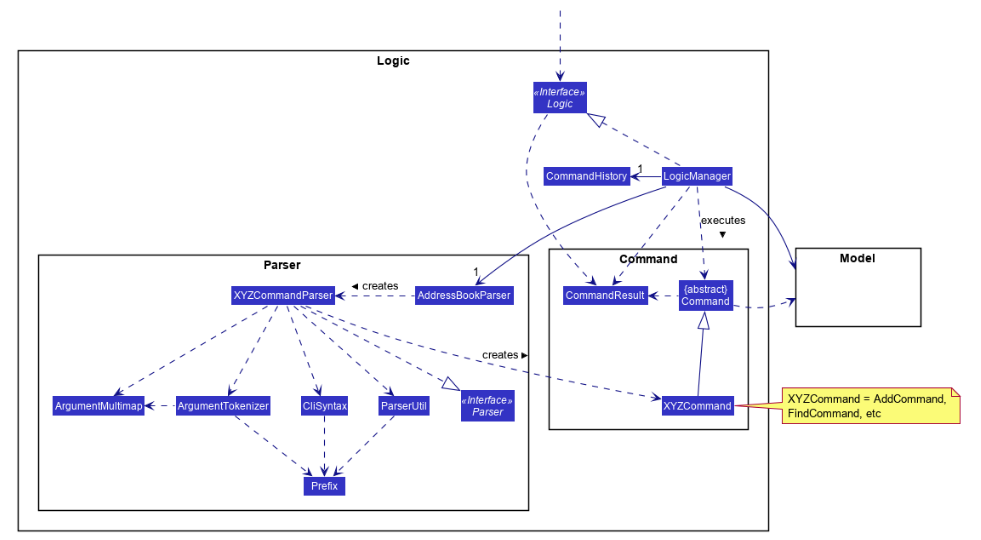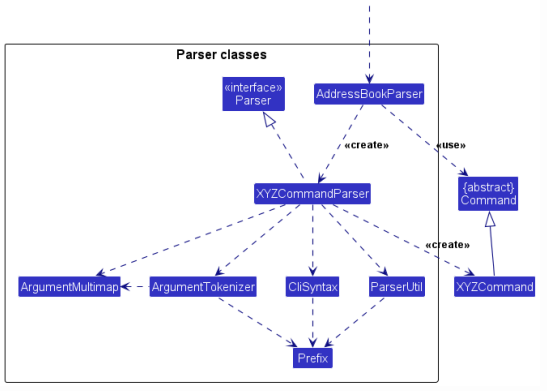Team's Response
We concede that this is not compliant with the notation covered in the course and is a valid bug.
However, we do feel that the terms are still semantically accurate and is unlikely to cause any confusion among developers despite being in an unfamiliar format. Hence, we have relabeled it as Low.
Items for the Tester to Verify
:question: Issue severity
Team chose [severity.Low]
Originally [severity.Medium]
- [x] I disagree
Reason for disagreement: I would agree that this issue could be considered low severity if it occurred only once in a single diagram, as stated in the textbook. However, this problem is repeated across multiple diagrams, which increases its frequency and impact. Therefore, I believe it warrants a higher severity level of medium. This aligns with a similar discussion in the forum #770., where it was noted that the higher frequency of a problem justifies an increase in severity.
Moreover, in AB4, the UML notation was corrected to follow the standard conventions we were taught. This reinforces the idea that it is indeed an issue requiring attention, as it was explicitly addressed and fixed in the updated AB4 UML diagram.
Here is the AB4 update UML diagram.

By ensuring diagrams adhere to the taught standards, we reduce confusion and maintain clarity for all users referencing these diagrams. Therefore, I believe it warrants a medium as it is an invalid notation bug that is used repeatedly in multiple of your UML diagrams.
Background
In cs2103 textbook standard notation for uml diagrams, \<\> and \<\
Expected
\<\> and \<\
Actual
It is used in multiple uml diagrams.
Why this severity
I am giving it medium as it is used in multiple uml diagrams which increases the severity of this bug as it can cause confusion to users in multiple diagrams. This bug can be considered as "not compliant with notation covered in course". If it was only used once, it would have been a lower severity.